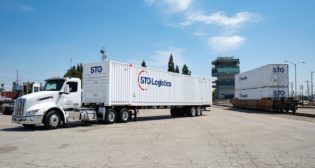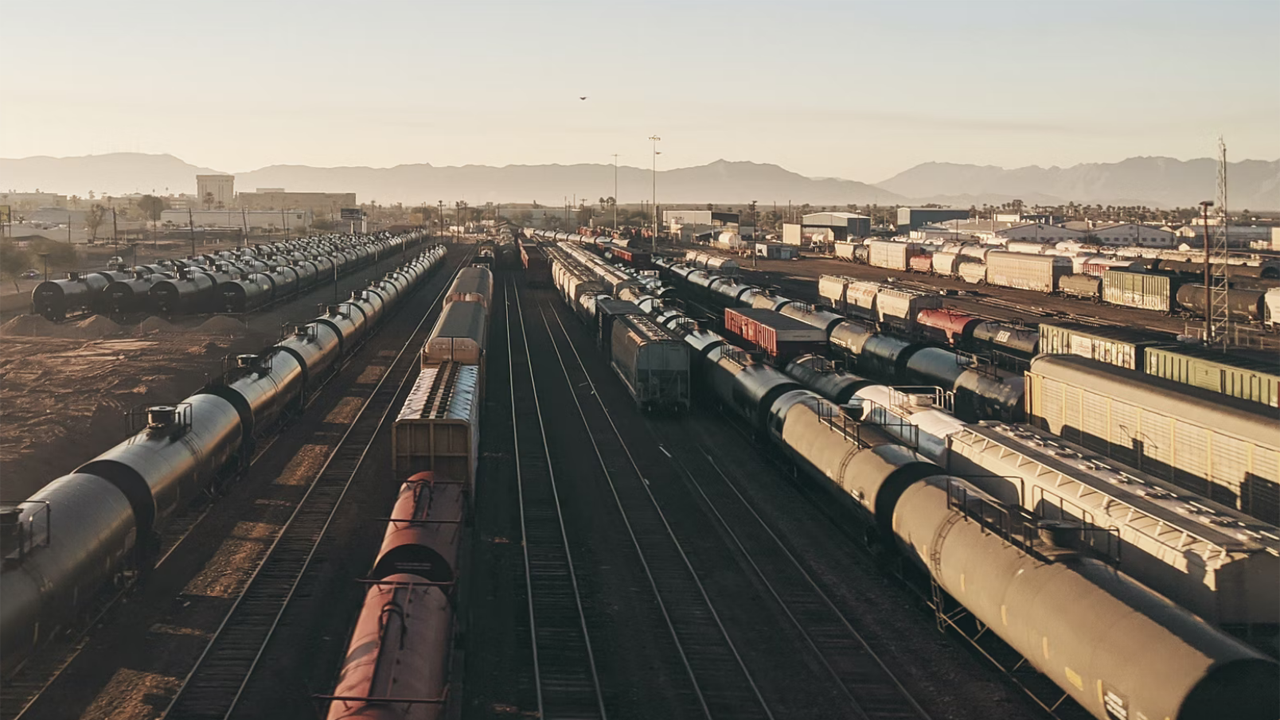
First Look: Freight Rail Shipping Fair Market Act
Written by Marybeth Luczak, Executive Editor
Legislation to reauthorize the Surface Transportation Board (STB) and “create a fair marketplace” for railroads and shippers was introduced in the U.S. House of Representatives on Aug. 2. While the Association of American Railroads (AAR) called it an “untenable bill that could further exacerbate current supply chain and service challenges,” the American Chemistry Council (ACC) welcomed the “sensible legislative package.”
The Freight Rail Shipping Fair Market Act was brought forward by Rep. Donald M. Payne Jr. (D-N.J.), Chair of the House Subcommittee on Railroads, Pipelines, and Hazardous Materials; Rep. Peter DeFazio (D-Ore.), Chair of the House Committee on Transportation and Infrastructure; Rep. David Scott (D-Ga.), Chair of the House Committee on Agriculture; and Rep. Jim Costa (D-Calif.), Chair of the Subcommittee on Livestock and Foreign Agriculture.
According to a released section-by-section analysis, bill provisions include:
• Authorizing $256 million over five years for the STB, with required set-asides of 5% for the establishment of a Passenger Rail Program, including the addition of up to 10 full-time employees to assist with program activities, as outlined under Section 22309 of the Infrastructure Investment and Jobs Act; and of up to $1 million per year for two years “for studies on freight rail competition, identifying the environmental benefits of rail, and supply chain data.”
• Expanding the Railroad-Shipper Transportation Advisory Council (RSTAC) from 19 to 24 members. Three new non-voting positions would be created—one each representing labor, railcar lessors and port authorities—and all five STB members would be authorized to participate, rather than just the current three.

• Requiring the STB “to review exempt commodities one year after [bill] enactment and every 10 years thereafter to determine whether market competition sufficiently exists to keep the commodity on the exemption list. Exempt commodities are assumed to have access to competitive transportation markets and therefore the STB does not regulate those transportation services.”
• Requiring the STB, within nine months of bill enactment, to submit to Congress a report on steps it can take “to speed up consideration of rate review cases.”
• Requiring “railroad-shipper contracts, which encompass 80% of rail volume, to include service delivery standards and appropriate remedies as a result of a failure to meet service delivery standards. Summaries of each agricultural product contract must also include service delivery standards and requisite remedies.”
• Requiring railroads, private car owners and lessees to report demurrage income quarterly to the STB. Additionally, the bill notes “the growing shift in railcar ownership toward shippers requires an update in who can charge premiums to fulfill the national need related to efficient freight car use and distribution,” so it “expands this financial mechanism to private car owners and lessees that transport agricultural commodities and other essential commodities.”
• Including a policy statement in support of freight car GPS and other telemetry systems that “inform shippers where in the freight rail system their cargo is located. It also requires the STB and the Federal Railroad Administration (FRA), in coordination with the Department of Homeland Security (DHS), to submit a report on the safety and other regulatory challenges and opportunities of such a system.”

• Directing the Government Accountability Office (GAO) “to conduct a study not later than two years after [bill] enactment on existing contractual prohibitions and restrictions between Class I railroad carriers and Class II and III carriers on interchange agreements.”
• Prohibiting rail rate increases “during rail service emergencies declared by the STB.”
• Creating an 18-member Railroad-Passenger Rail Transportation Advisory Council (RPRTAC) comprising the five STB members, 10 senior executive officers of “organizations engaged in the freight railroad and passenger rail industries; states that fund intercity passenger rail services; and non-voting representation from the Secretary of Transportation, rail passengers and labor.”
• Requiring that “current and future passenger rail service be accommodated in STB railroad merger and acquisition considerations.”
• Adding “magnetic levitation technologies” to the definition of a rail line.
(Scroll down for complete bill text, plus its section-by-section analysis.)
“I am proud to introduce the Freight Rail Shipping Fair Market Act with Chair DeFazio, Chair Scott and Chair Costa to improve rail shipping nationwide,” Chair Donald M. Payne, Jr. said. “The freight rail companies have focused on profits instead of performance and it has led to delays and problems in how we transport commodities to farms, factories and stores across the country. My bill gives the Surface Transportation Board the power to prohibit rail rate increases during a rail emergency and resolve rail emergencies when they occur. This bill will improve the speed and reliability of rail service and guarantee that freight rail shipping continues to improve in the future without unnecessary regulations.”
Industry Response
AAR on Aug. 2 released this statement following the bill’s debut:

“The House Railroads Subcommittee today introduced the ‘Freight Rail Shipping Fair Market Act,’ an untenable bill that could further exacerbate current supply chain and service challenges and that threatens the long-term viability of the nation’s freight rail system.
“‘This imprudent proposal turns the clock back more than 40 years and reinstates an unbalanced regulatory framework that replaces free-market principles with unjustified government mandates,’ said AAR President and CEO Ian Jefferies. ‘Since the industry was partially de-regulated in 1980, freight railroads have invested nearly $760 billion to improve the safety, competitiveness and sustainability of their operations. Their ability to continue this level of spending is critical to meeting today’s and tomorrow’s freight demands. Safe, reliable, cost-effective and fuel-efficient freight rail transportation is essential to our future. Overreaching re-regulation will take us backward and won’t do a thing to solve current service challenges and supply chain problems.’
“In testimony before the House T&I Rail Subcommittee this past May, STB Chairman Oberman agreed. He explained that expanding the Board’s oversight would not help with the labor and supply chain challenges freight railroads are working to solve and noted that ‘the Board can use its existing authority to mitigate those problems in a meaningful way.’
“Jefferies noted, ‘Today’s STB is exercising its oversight authority vigorously. Almost half of the proposed bill is already the subject of ongoing Board proceedings. Congress should learn from lessons of the past: more government control does not result in better railroads. By virtue of today’s balanced regulatory framework, America’s freight railroads are, by virtually any measure, the best national freight rail system in the world. Now more than ever, we need that best-in-class system, and it is not the time for railroads to be hamstrung by excessive regulation.’”
While the American Short Line and Regional Railroad Association (ASLRRA) was “pleased with several studies and initiatives provided for in the bill,” it said it was “unable to support the bill as released.” In a statement issued Aug. 2, ASLRRA said: “On behalf of the country’s 600 Class II and III short line freight railroads, the American Short Line and Regional Railroad Association (ASLRRA) appreciates the intent of the House Transportation and Infrastructure Committee to find ways to improve the movement of freight on the national rail network. The Freight Rail Shipping Fair Market Act contains several studies and initiatives that are welcome and could aid Class II and Class III railroads and the overall freight rail industry. The bill, however, contains a myriad of mandates and dramatic government interventions into the marketplace that would harm the overall strength and viability of the freight rail business over time and disrupt short line railroads’ ability to serve their customers. These provisions would insert aggressive government regulation into the complex, interconnected freight rail network, create an array of unintended consequences, and ultimately do more harm than good. ASLRRA alerted Congress to our concerns, and provided a detailed review of each provision and suggestions as the bill was being drafted. As released, ASLRRA cannot support this legislation.”
Also on Aug. 2, ACC President and CEO Chris Jahn released this statement: “Our industry is one of the biggest customers of freight rail and our transportation needs continue to grow with expansion of U.S. chemical manufacturing. This should be good news for the freight railroads, but ongoing rail service problems are putting the brakes on manufacturing and future growth. This important legislation contains many thoughtful solutions that complement and line up well with the much-needed reforms being considered by the STB. We urge Congress and the STB to work together on meaningful reforms that will incentivize the railroads to provide reliable and competitive service and hold them accountable when they fail to deliver.”
Wilner Weighs In

“The bill now has no Republican support, but passage in the traditional manner isn’t its objective,” commented Railway Age Capitol Hill Contributing Editor Frank N. Wilner, who is a former assistant vice president for policy at the AAR, former chief of staff at the STB, and a former UTU official. “There simply is insufficient time remaining on the congressional calendar in this election year for public hearings where, especially, the STB would have opportunity to explain why the bill is stepping on their expertise before they even have opportunity to complete progressing rulemakings addressing those very subjects. Congressional oversight does not mean usurping the functions of administrative agencies as this bill would do, but ensuring administrative agencies follow statutory directives.
“The evil lurking is the oldest trick in the legislative handbook. Rail labor and captive shippers have enlisted DeFazio to have it ready for appending to ‘must-pass’ legislation that Republicans will have difficulty opposing. The vehicle is a back-to-work order should labor shutdown the nation’s rail network in mid-September if unhappy with Presidential Emergency Board recommendations due by mid-September to settle stalled wage and benefits contract talks. Attempting to separate non-germane provisions from an otherwise essential back-to-work order will only prolong an already economy-jolting rail shutdown.
“Not to be ignored is a high-probability last-moment addition to the bill as it is appended to a back-to-work order—a simple provision requiring, in perpetuity, two-person crews on every freight, passenger and commuter train in the land regardless that some already have been long-operating without two-person crews and that advancing technology will make the second crew member in the locomotive cab less productive than working elsewhere.
“Shippers, meanwhile, have a fallback position should labor and management settle without a work stoppage and it becomes more obvious that the DeFazio bill is a legislative dead-end regardless of whether labor strikes. Sen. Tammy Baldwin (D-Wis.) and Rep. Jim Costa (D-Calif.) are collaborating on a single-issue bill—a now in draft form Common Carrier Obligation Clarification Act—to require the STB to define more completely the railroads’ common carrier responsibility.
“Its current draft form is nearly identical to Section 205 of the DeFazio bill and was inserted by Costa who is a co-sponsor of the DeFazio bill. Section 205 would require service delivery standards by commodity and provide remedies for when those service delivery standards are not met. The language would seize from the STB a task that Chairman Martin J. Oberman is on record as intending to pursue in 2023—a task more competently and efficiently performed by STB economists and attorneys with far greater understanding of railroad/shipper interactions and rail operations than possessed by lawmakers.
“There is chatter among shippers that while attention is being directed at the comprehensive DeFazio bill, a single-issue common carrier definition might actually find a path to House-Senate passage during the lame-duck session following November congressional elections. Costa represents domestic agriculture interests as chair of the House Subcommittee on Livestock and Foreign Agricultures, while Baldwin is a member of the Senate Commerce Committee.
“There also is chatter that DeFazio, at rail labor’s urging, is planning a public hearing to coincide with the Presidential Emergency Board’s contract-settlement recommendations in mid-September. It likely will be a joint hearing involving one or more other committees or subcommittees with the intention of airing labor concerns during the final cooling off period during which labor will be deciding whether to settle based on the recommendations or strike and shutdown the nation’s rail network.”



